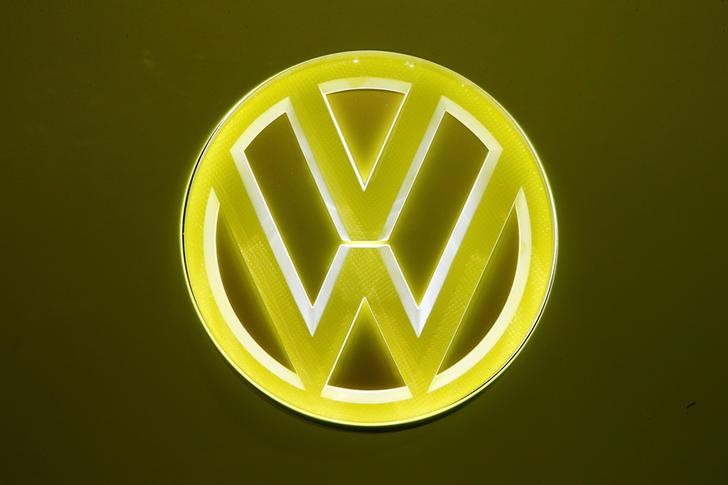This post was originally published on this site
https://i-invdn-com.investing.com/trkd-images/LYNXMPEI0B0DT_L.jpg
By contrast, luxury carmaker BMW saw record deliveries of 2.21 million vehicles from the BMW brand, a success attributed in part to its ability to adapt to supply chain shortages.
The Volkswagen brand saw an 8.1% drop in sales to just under 4.9 million units, with the biggest fall in China at 14.8%, although battery-electric vehicle sales in the country quadrupled.
“Under unusually challenging circumstances, Volkswagen reached a satisfying sales result,” sales and marketing chief Klaus Zellmer said. “However, the huge effects of chips on production were not able to be fully compensated.”
BMW rival Daimler (OTC:DDAIF) reported last Friday that Mercedes-Benz sales dropped 5% in 2021, losing its crown to BMW for the first time in five years as the premium carmaker with most vehicles sold worldwide.
Performance for the premium carmakers was weakest in Europe, with the BMW and Mini brands registering just 3.9% growth and Mercedes-Benz an 11.2% drop.
North America was a strong market for all three carmakers. Mercedes-Benz registered 0.4% growth in the United States and BMW 19.5%. Volkswagen saw 13% growth in the region.
Sales of hybrid or fully-electric vehicles rose across the industry, particularly in Europe, where they constituted between a fifth and a quarter of deliveries – but remained a small proportion of total global sales.
At the Volkswagen Group, for example, battery-electric vehicles constituted 5.1% of deliveries – double last year’s figure, but a fraction of the carmaker’s 2030 target of 50%.

